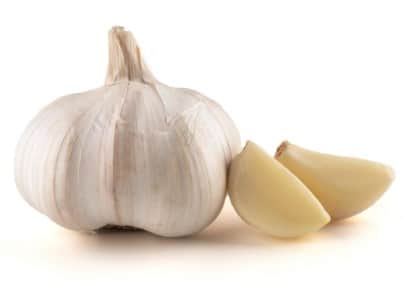

Symptoms of a garlic allergy in dogs may include itchy, red, and inflamed skin, bald patches, and contact dermatitis. In more severe cases, a garlic allergy can also cause vomiting, diarrhea, and difficulty breathing.
The cause of a garlic allergy in dogs is an overreaction of their immune system to garlic. This overreaction causes their body to view garlic as a foreign, dangerous substance. The immune system then produces antibodies to fight against the garlic, leading to the uncomfortable symptoms seen in those with a garlic allergy.
The diagnosis of a garlic allergy in dogs entails bringing the pet to a veterinarian for an examination and interview regarding the symptoms. Laboratory tests may be used to confirm the presence of an allergy, such as a skin prick test or a blood test. The veterinarian may recommend an elimination diet to determine which foods are causing the reaction. The veterinarian may also provide anti-inflammatory medication or an allergy shot to help alleviate symptoms.
A garlic allergy in dogs can be a serious condition if it remains untreated. Symptoms can range from mild skin irritation to more severe difficulty breathing, and death is possible if the allergy is not treated quickly. The mortality rate of garlic allergies if left untreated is unknown. However, prompt diagnosis and treatment can usually prevent serious adverse effects.
The treatment of a garlic allergy in dogs depends on the severity of the symptoms. For mild cases, the treatment may involve antihistamine medications or topical creams to reduce itching. For more severe cases, corticosteroids or immunotherapy may be prescribed to reduce inflammation and the risk of an allergic reaction. In the most severe cases, medications may be required to treat anaphylaxis. If you notice any of the symptoms, it is important to take your dog to the vet as soon as possible.
Prevention methods for garlic allergies in dogs include avoiding garlic in any dog foods or treats, thoroughly washing any dishes that have been used to cook with garlic, and making sure to clean up pet bedding and toys if garlic has been cooked in close proximity to them. It is also important to keep a close watch on your dog for any signs of a garlic allergy and to take them to the veterinarian if symptoms of an allergy appear.
A garlic allergy in dogs is not considered contagious, so it cannot be passed from one dog to another or from a dog to a human. However, if a human comes into contact with the same allergen that has triggered a reaction in a dog, they may experience an allergic reaction.
Home remedies such as apple cider vinegar, oatmeal baths, aloe vera, or plain yogurt can be used to help manage the symptoms of a garlic allergy, such as itching and redness. It’s also important to make sure that your pet avoids contact with garlic in order to avoid any potential allergic reactions.
While some of these home remedies can help manage garlic allergies in dogs, it is best to consult with your veterinarian before implementing any treatment plans. Every pet is unique, so what works for one dog may not work for another – so it’s important to get the right advice before proceeding.
Two breeds of dogs that are particularly vulnerable to garlic allergies are Labrador Retrievers and Siberian Huskies. Labradors are particularly prone to skin allergies, including those from garlic. Siberian Huskies are also susceptible to allergies since they have a low tolerance for environmental allergens. These dogs may experience skin rashes, irritation, and itchiness after ingesting garlic or being exposed to airborne particles from garlic. It is important to note that not all dogs of these breeds may be affected by garlic allergies, they are just more likely to suffer from them than other breeds.
Has your pup ever experienced a garlic allergy? If so, how did they react? What were your emotions and how did you handle the situation? Handling allergies can be tricky sometimes, but as long as you take the proper steps and precautions, your dog can be healthy and happy. We wish your pup the best of luck in managing their garlic allergies, and hope for a speedy recovery!